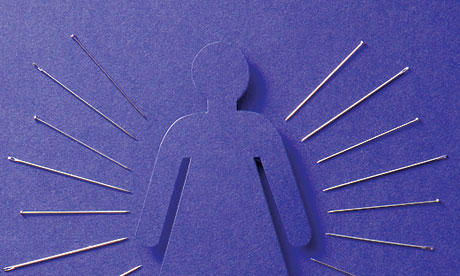We've all seen them, and we all enjoy them, but why do they work? How do they work?
They come as either 2D or 3D.
The vase/people kissing
2D optical illusions work by contrasting colours. For example, black and white, yellow and purple, have a gander at the colour wheel to check out the opposites!
- The way 2D ones work is by using the space not really used by one colour to compliment the space of another. For example, take this one on the right.
- The space that isn't used in the vase, is used for the faces, and vice versa.
- Depending on your personality and the way your brain is wired, if you're a romantic (or a player for that matter), then you'll see the 2 faces about to kiss. However, if you're a person who appreciates vases, you'll probably see the vases.
 This is a concept hard-wired into us about making sense of the environment relative to what we like doing.
This is a concept hard-wired into us about making sense of the environment relative to what we like doing.
The moving dot
This is a cool one!
- Open that picture up in a new tab.
- Stare at the black cross, the dot should appear to be green, and the lilac dots should disappear.
Why?
When you stare at the cross, the lilac is so intense, that your brain tries to balance it with the opposite end of the colour wheel. (green)
The grid
Get a close look, the black and white dots gone all funny?
Well, there's actually no black dots..
- This is caused by a clash in the receptive field, where your dark light receptors compete with your bright light receptors.
Away from the Psychology and into the Biology
Your eyes have a blind spot. This is the bit in your eye where your brain takes no notice of what's going on.
 Now you may be thinking, "why isn't there a big hole of nothingness?". It's your brain being clever, it can fill in the blank space with bits of information.
Now you may be thinking, "why isn't there a big hole of nothingness?". It's your brain being clever, it can fill in the blank space with bits of information.
Wanna try it?
- Click the image on the right.
- Close your right eye, and slowly move closer, focusing on the dot, the cross should disappear.
- Try it with your left eye, this time focusing on the cross, the dot should disappear!
Why?
In your eye, you need to send all the information to the brain, and it so happens, this nerve runs right across the middle of your eye. (Bit stupid I know). Anyway, this is the bit where your receptors get no information because the Optical nerve blocks the way. However, lucky for you, your brain fills the space in and you can see!














































